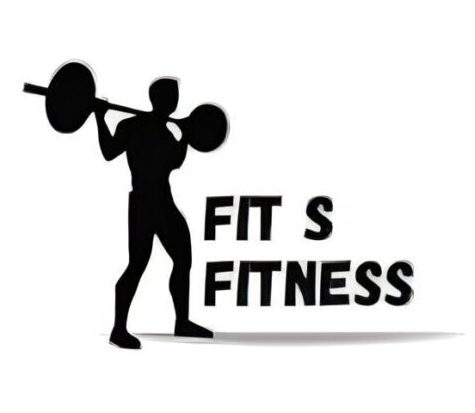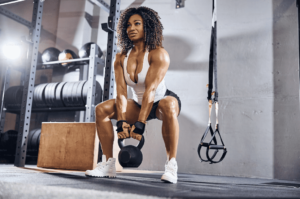Introduction
Whether you’re an avid athlete, a fitness enthusiast, or just someone looking to improve their physical performance, nutrition plays a vital role in achieving your fitness goals. Proper nutrition not only helps you maintain a healthy weight but also optimizes your energy levels, enhances recovery, and supports overall well-being. In this long-form content, we’ll explore essential nutrition tips to help you fuel your fitness and perform at your best.
Understand Your Caloric Needs:
To fuel your body for optimal performance, it’s crucial to understand your caloric needs. Your energy requirements depend on various factors such as age, gender, weight, activity level, and fitness goals. Use a reliable online calculator or consult with a registered dietitian to determine your daily caloric needs. Consuming the right amount of calories ensures you have sufficient energy for workouts and daily activities.

Prioritize Balanced Meals:
A balanced diet is essential for overall health and fitness. Focus on incorporating a variety of nutrient-dense foods into your meals, including:
a. Proteins: Proteins are the building blocks of muscle and are essential for tissue repair. Include lean sources such as chicken, turkey, fish, tofu, beans, and legumes in your diet.
b. Carbohydrates: Carbohydrates are the primary energy source for your body. Opt for complex carbohydrates like whole grains, fruits, vegetables, and sweet potatoes, as they provide sustained energy.
c. Fats: Healthy fats support hormone production and nutrient absorption. Include sources like avocados, nuts, seeds, olive oil, and fatty fish in your diet.
Hydration is Key:
Proper hydration is often underestimated but is crucial for optimal athletic performance. Dehydration can lead to decreased energy levels, impaired cognitive function, and reduced exercise performance. Aim to drink at least 8-10 glasses of water per day and increase your intake during intense workouts.
Pre-Workout Nutrition:
Eating the right foods before a workout can provide the energy and stamina needed to perform at your best. Consume a balanced meal containing carbohydrates and protein about 2-3 hours before exercise. This allows time for digestion and absorption. If you have less time, opt for easily digestible snacks like a banana with nut butter or a protein smoothie.
Fueling During Exercise:
For prolonged workouts or intense training sessions lasting more than an hour, consider fueling with easily digestible carbohydrates. Sports drinks, energy gels, or chews can provide a quick energy boost to maintain performance levels.
Post-Workout Recovery:
After exercise, your body requires proper nutrients for recovery and repair. Focus on consuming a meal rich in protein and carbohydrates within an hour of completing your workout. This aids in muscle recovery and replenishes glycogen stores for your next session.
The Importance of Protein:
Protein is essential for muscle repair and growth, making it a vital component of any fitness-focused diet. Distribute your protein intake throughout the day to support continuous muscle protein synthesis. Aim for a variety of protein sources to get a complete amino acid profile.
Don’t Skip Meals:
Skipping meals can lead to decreased energy levels and impaired performance. Make sure to have regular meals and snacks throughout the day to maintain stable blood sugar levels and support your body’s nutritional needs.
Consider Nutritional Supplements:
Consult with a healthcare professional or dietitian to determine if you have any specific nutrient deficiencies or if supplements could be beneficial for your performance.
Listen to Your Body:
Every individual is unique, and nutritional needs can vary based on genetics, metabolism, and activity levels. Keep a food diary to track your meals and assess how they impact your performance and overall well-being.
Get Adequate Rest:
Ensure you get enough sleep each night, as it plays a significant role in muscle repair, hormone regulation, and mental focus.
Avoid Fad Diets:
Avoid falling for fad diets that promise quick results. They often lack essential nutrients and can be detrimental to your health and athletic performance in the long run. Instead, focus on sustainable, balanced eating habits.
Nutrition Counseling:
Nutrition counseling in fitness refers to the process of providing individuals with personalized guidance and advice about their dietary habits and nutritional choices to support their fitness goals. This type of counseling is typically offered by registered dietitians, nutritionists, or fitness professionals who have expertise in the field of nutrition. The aim of nutrition counseling is to help individuals make informed decisions about their diet that align with their fitness objectives, whether it’s weight loss, muscle gain, improved athletic performance, or overall health and well-being.

- Assessment: The counselor evaluates the individual’s current dietary habits, lifestyle, medical history, and fitness goals. This assessment helps in understanding the person’s nutritional needs and identifying areas that need improvement.
- Personalized Recommendations: Based on the assessment, the counselor develops a personalized nutrition plan that takes into account the individual’s calorie and macronutrient requirements, as well as specific nutrient needs. This plan is tailored to support the person’s fitness goals and can vary widely depending on whether the goal is fat loss, muscle gain, or performance enhancement.
- Education: Nutrition counseling involves educating individuals about the importance of balanced nutrition, nutrient-rich foods, portion control, and proper hydration. Clients learn how different nutrients affect their bodies and how to make healthier food choices.
- Behavior Change: Changing dietary habits can be challenging. Nutrition counseling often includes strategies to help individuals adopt sustainable and realistic dietary changes. This might involve setting achievable goals, addressing emotional eating, and finding ways to overcome barriers to healthy eating.
- Monitoring and Adjustments: Nutrition counselors work with individuals over time, monitoring their progress and making adjustments to their nutrition plan as needed. This could involve tweaking macronutrient ratios, adjusting calorie intake, or modifying meal timing to optimize results.
- Support and Accountability: Nutrition counselors provide ongoing support and motivation to help individuals stay on track with their dietary changes. They serve as a source of accountability and guidance, offering solutions to challenges that may arise.
- Evaluating Progress: Regular check-ins and assessments help individuals and their nutrition counselors evaluate progress toward fitness goals. Adjustments can be made based on changes in body composition, energy levels, performance, and overall well-being.
Conclusion
In conclusion, proper nutrition is the foundation of optimal fitness performance. By understanding your caloric needs, prioritizing balanced meals, staying hydrated, and supporting your body with the right nutrients, you can fuel your fitness journey effectively. Remember to listen to your body, get adequate rest, and avoid falling for fad diets. For personalized guidance, consider consulting with a registered dietitian who can create a nutrition plan tailored to your specific goals and needs.




